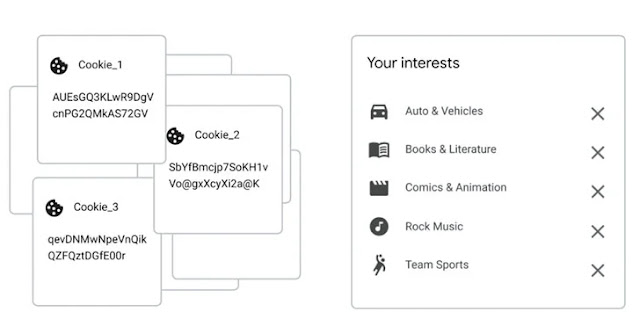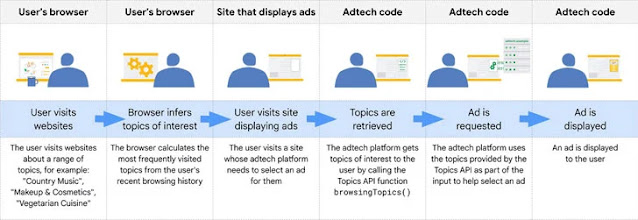Google stated on Tuesday that it is dropping its contentious plans to replace third-party cookies in favor of a new Privacy Sandbox concept called Topics, which divides users' browsing behavior into about 350 categories.
Users' browser history for a particular week is slotted into a handful of top pre-designated interests (i.e., subjects) that are only maintained on the device for a revolving period of three weeks under the new system, which replaces FLoC (short for Federated Learning of Cohorts).
When a user visits a participating site, the Topics API selects three of the user's interests to share with the site and its advertising partners – one topic from each of the previous three weeks. Users may not only see the topics, but also remove them or stop the framework entirely, giving them more control over it.
The idea is to facilitate interest-based advertising by showing users more relevant ads without having to know the specific sites that have been visited by labeling each website with a recognizable, high-level topic and sharing the most frequent topics associated with the browsing history by labeling each website with a recognizable, high-level topic and sharing the most frequent topics associated with the browsing history.
Subjects, which will be available as a developer trial in the Chrome browser, uses machine learning to infer topics from hostnames and is aimed to keep sensitive categories like sexual orientation, religion, gender, and race out, according to Google.
"Because Topics is powered by the browser, it provides you with a more recognizable way to see and control how your data is shared, compared to tracking mechanisms like third-party cookies," Vinay Goel, privacy director of Privacy Sandbox, said.
"And, by providing websites with your topics of interest, online businesses have an option that doesn't involve covert tracking techniques, like browser fingerprinting, in order to continue serving relevant ads," Goel added.
The news comes exactly seven months after Google said that FLoC will be delayed from early 2022 to late 2023 due to widespread backlash from privacy groups and publishers, causing the firm to admit that "additional time is needed throughout the ecosystem to get this right."
Topics also wants to address some of the key issues with FLoC, which the Electronic Frontier Foundation (EFF) described as a bad idea that put users' privacy at danger.
FLoC was chastised in particular for creating "cohorts" from a mix of online interests, which could lead to people being classified in ways that enhance the risk of discrimination. Furthermore, if a cohort is deemed too small, it can be paired with additional tracking data to uniquely identify a person, essentially nullifying privacy restrictions.
The change is part of Google's aim to phase out third-party cookies due to privacy concerns. The efforts, dubbed Privacy Sandbox, attempt to develop privacy-focused alternatives that limit user tracking on the web while preserving existing web features, such as advertising.

